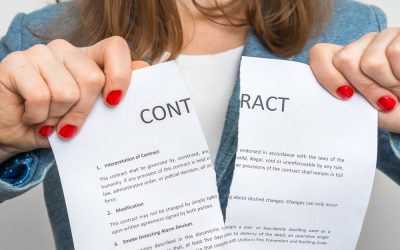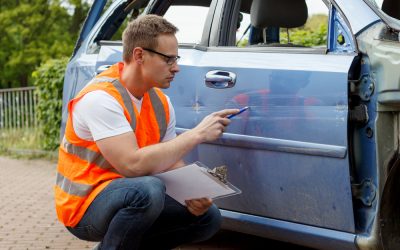
Yes, you can get PTSD from a car accident. In fact, emotional trauma and stress disorders related to car accidents are common, but not well-studied. That means there are a lot of misconceptions about PTSD and car accidents, sometimes even among professionals.
To be clear, most car accident victims do not develop PTSD symptoms. It’s also impossible to predict which victims will or won’t develop these symptoms. Even in a severe crash, not everyone will. But it’s common enough that you should know what to look for. You could get compensation for PTSD treatment.
Symptoms of PTSD After a Car Accident
PTSD carries several symptoms, including physical, mental, and behavioral symptoms. A typical PTSD patient will not show all the symptoms, but will have a number of symptoms from at least two categories. These include:
Physical PTSD Symptoms
- Sudden weight loss or weight gain
- Insomnia or, alternatively, fatigue and sleeping more than usual
- Ongoing physical pain, often with no clear cause
Mental PTSD Symptoms
- Disorientation or confusion
- Inability to make decisions, or getting irritable when having to decide
- Difficulties with memory
- Difficulty concentrating on a task
Behavioral PTSD Symptoms
- Sudden outbursts
- Anxiety
- Depression
- Blaming yourself for what happened
- Feeling ashamed
- “Survivor’s Guilt”—especially if someone else was harmed in the accident
- Suicidal thoughts and/or self-harming behaviors
- Violent thoughts
- General irritability or agitation
If you get PTSD from a car accident, you are also likely to experience a fear of driving in general, or at least a fear of taking the same route. Again, you do not have to display all of these symptoms to have PTSD. But if you notice several of them in yourself or a loved one, it may be worth it to talk to a professional. While a trained mental health therapist can help you recover, an Atlanta PTSD lawyer can help you get compensation. After all, this disorder can be extremely disruptive to your well-being and social life.
Risk Factors for PTSD Development after Car Accidents
Strangely, it’s not the severity of the type of accident that influences PTSD development. It’s how victims perceive and respond to the accident. A study in 2012 showed that if you perceive your life was in danger in the accident, that was the strongest predictor for PTSD development six months after the accident.
Poor psychological coping behaviors are also risk factors. Avoidance behaviors, suppressing thoughts about what happened, dissociation, and thinking about the trauma over and over again also raise the risk of developing PTSD.
Avoidance behaviors are especially risky. You might not want to drive after your accident because every time you see a vehicle, you think of what happened. This creates a vicious cycle that keeps your fear levels high. You can process these emotions with professional help.
Are There Other Risk Factors?
Yes. Existing mental disorders like anxiety or depression can make it easier to get PTSD. So will a prior history of trauma. First responders are also at a higher risk because they frequently see traumatic situations.
Another big risk factor is a lack of support. When you can talk about what happened to family and friends, it helps your body and mind calm down and process what happened. If you do not have a support system, please seek professional help.
What Help Is Available for PTSD Sufferers?
The first step in any car accident case is to get immediate medical attention if needed. Even minor physical injuries deserve to be looked at by a doctor. Your family physician or the ER can also refer you to a good therapist if you are experiencing emotional trauma.
Remember that most car accident victims will have stress and emotional trauma at first, but many will recover from that within months. This is why it’s so helpful to see a therapist for even just a few sessions early on to deal with the initial shock.
Just because you have fear or intense emotion after your accident doesn’t mean you have PTSD. These reactions are normal. It becomes PTSD when the symptoms last months or years after an accident and it affects your work and personal relationships.
What Could My Therapist Recommend?
Your therapist can help you determine if you are moving past your trauma at a normal pace, and help you deal with it in the healthiest way possible.If you seem to be at risk of PTSD or another long-term trauma reaction, any of the following may be recommended:
- Ongoing weekly or bi-weekly therapy sessions. In particular, a type of therapy known as cognitive-behavioral therapy (CBT) is extremely effective at dealing with trauma and helping patients overcome the symptoms of stress disorders.
- Psychiatric help may involve prescribing medication that can help you manage your stress and mood.
- PTSD treatment centers are among the most effective ways of making lasting changes without medication. These centers provide you with a temporary “escape” from the stress of regular life and a space where you focus on moving forward with your PTSD recovery using a variety of innovative therapies. They are also known as “PTSD rehab.”
Simply staying connected to those you love is also recommended—including seeing friends, pursuing your hobbies, and attending the events you used to attend. One enormous risk for car accident-related PTSD sufferers is avoiding use of the car, or of any vehicle, and ultimately becoming socially reclusive—which makes things worse. The more you can go out and see loved ones, the better.
Will Insurance Pay for My PTSD Treatment?
It depends on what happened. In Georgia, in order to make a car accident claim for PTSD, you must have suffered a physical injury of some kind. If your PTSD is related to that physical injury, then it is covered by your claim. Otherwise, it’s not.
In practice that means:
- Victims injured in the car accident CAN make a claim for PTSD
- Witnesses traumatized by seeing the accident CANNOT make a claim for PTSD unless they were also injured
That means that most, but not all, cases of car accident PTSD are covered by one of the driver’s insurance policies. But remember: insurers are not quick to pay out on these kinds of claims. They will act skeptical and they will try to talk down your claim as something less serious than it is. This is why it’s so important to have a car accident lawyer handle your claim for you.
However, if you were not injured, you may still be able to get your PTSD treatment covered from a different source. For example, if you have health insurance of your own (perhaps through an employer), there’s a good chance that insurance will cover at least part of your PTSD treatment costs.
We Can Help You with Your PTSD Accident Claim
You don’t have to try to deal with the insurance companies on your own, and you don’t have to settle for less than you deserve. Our legal team has over 20 years of experience helping those who get PTSD from a car accident. Let us help you—and give you a FREE consultation. Call us or fill out the form to the right to get your free consultation today.




